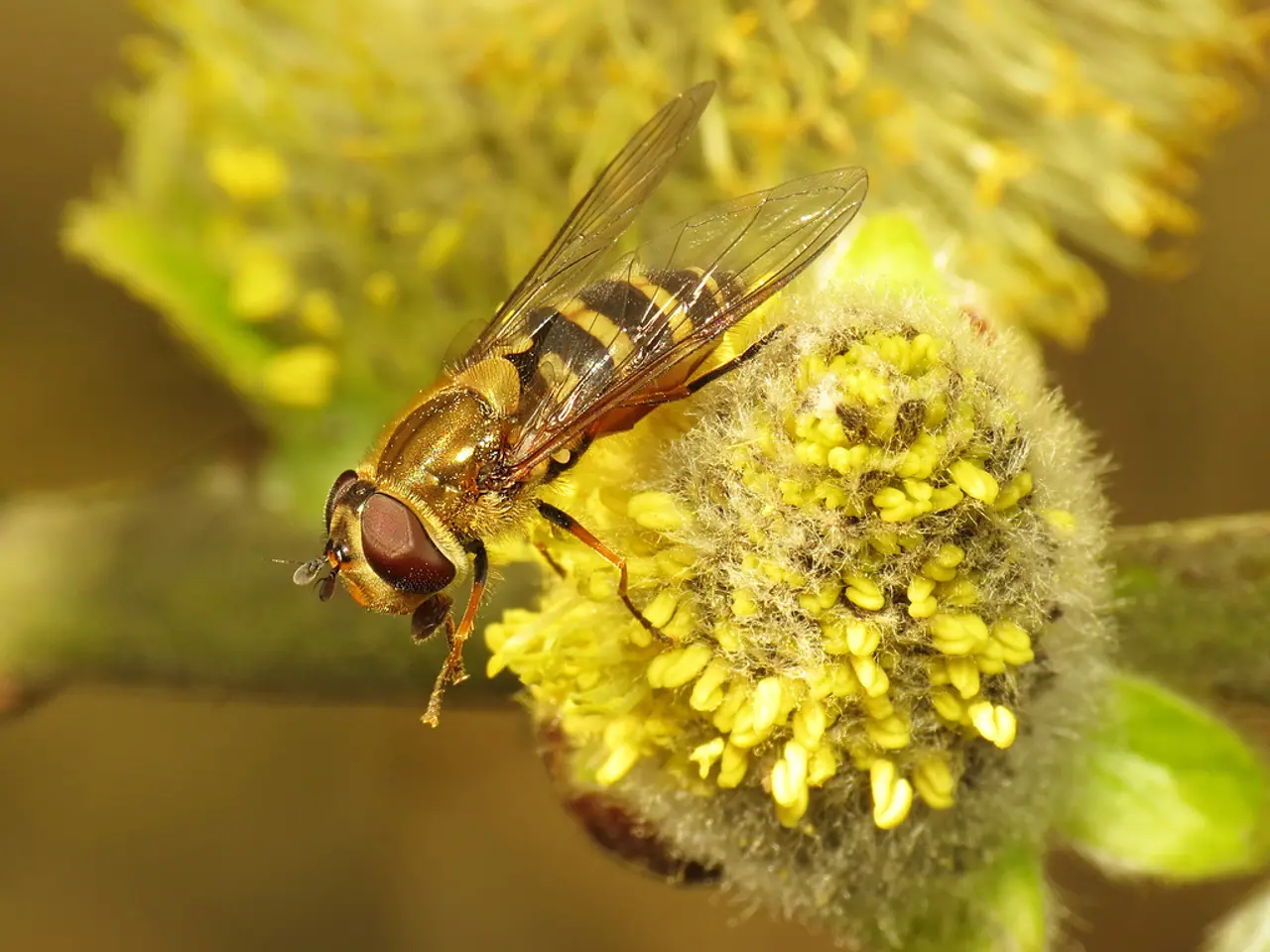Choosing Wisely: Navigating Price vs. Value When Opting for Manuka Honey
In the world of honey, Manuka honey stands out as a rare and coveted treasure. Produced from the nectar of the Leptospermum scoparium tree, this honey is prized for its unique bioactive composition and potential health benefits.
The production process of Manuka honey is complex, involving lab-testing for Methylglyoxal (MGO) content and other key bioactive compounds. The MGO level of a honey is an indicator of its concentration, with higher MGO indicating greater potential health benefits. This unique nutrient, derived from the Manuka tea tree, is responsible for the honey's prized antibacterial and antifungal properties.
Manuka honey also boasts Non-Peroxide Activity (NPA), a quality that sets it apart from regular honey. Unlike regular honey, which relies on peroxide activity for its antimicrobial properties, Manuka honey's NPA is more stable and less affected by the enzyme catalase. This stability contributes to its effectiveness against a broader range of pathogens.
The high price of Manuka honey is due to several factors. Its production is localized in specific regions of New Zealand, primarily from remote areas to ensure purity and high MGO concentration. The honey is also certified under the Unique Manuka Factor (UMF) rating system, which strictly regulates its quality and purity. Additionally, the demand for Manuka honey is high due to its perceived health benefits, leading to a premium price.
At our website, we offer Manuka honey branded as "Honey With Superpowers™", prioritizing purity, ethical beekeeping, and full transparency. We have pioneered The Art of Ethical Beekeeping, which includes providing bee colonies with access to a variety of flowering species, minimal hive disturbance, leaving bees with plenty of food during the winter, carefully placing hives in remote Manuka forests, and delicately harvesting and extracting Manuka honey 100% raw.
Every jar of our Manuka honey is lab-tested and traceable, ensuring consumers get what they pay for. Our website also offers a MGO quiz to help determine what MGO rating would work best for you and your lifestyle. We offer Manuka honey with MGO ratings ranging from MGO 600 to MGO 1000 and above.
Manuka honey contains unique prebiotics, like 'panose', that help nourish beneficial gut bacteria. Higher MGO Manuka honey is produced less frequently due to specific conditions and is therefore very rare. Authentic Manuka honey comes with lab-tested MGO certification and traceability features.
Manuka honey has a lower glycemic index than sugar, providing a sustained energy release without the crashes associated with refined sugar. Higher MGO levels in Manuka honey indicate stronger antibacterial properties. Our Manuka honey has an indulgent, caramel-like flavor.
Manuka honey contains unique antioxidants, such as Leptosperin, that contribute to immune support and overall wellness. With its unique bioactive compounds, controlled production, and stringent quality standards, Manuka honey is more expensive than regular honey, but its potential health benefits make it a worthwhile investment for many consumers.
[1] Wolfe, R. R., & Hancock, R. A. (2008). The Unique Mode of Action of Leptosperin, a Novel Antimicrobial Peptide from Manuka Honey. Apidologie, 39(3), 284-291.
[2] Molan, P. C. (2001). The Non-Peroxide Activity of Manuka Honey: An Overview of the Antibacterial and Antifungal Properties. Journal of Apicultural Research, 40(3), 193-205.
Science reveals the unique properties of Manuka honey, making it a standout in health-and-wellness. Its supplemental benefits stem from its high Methylglyoxal (MGO) content and Non-Peroxide Activity (NPA), which contribute to a healthy diet by offering sustained energy, immune support, and antioxidants such as Leptosperin. The creation of healthy-diets can be enhanced with Manuka honey, owing to its lower glycemic index and prebiotics like 'panose' that nourish beneficial gut bacteria. Fitness-and-exercise routines might also benefit from its potential antibacterial and antifungal properties, as highlighted in numerous scientific research.




